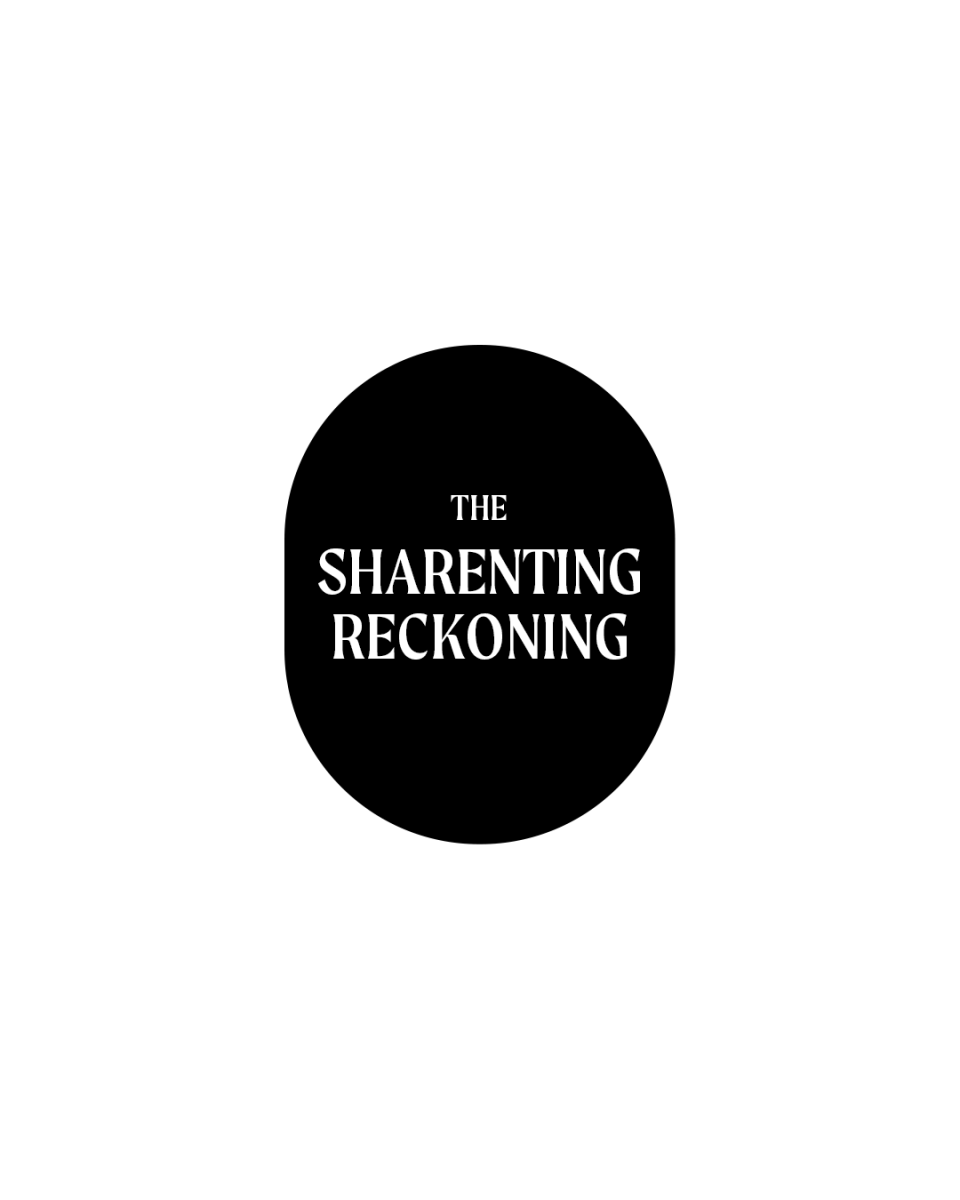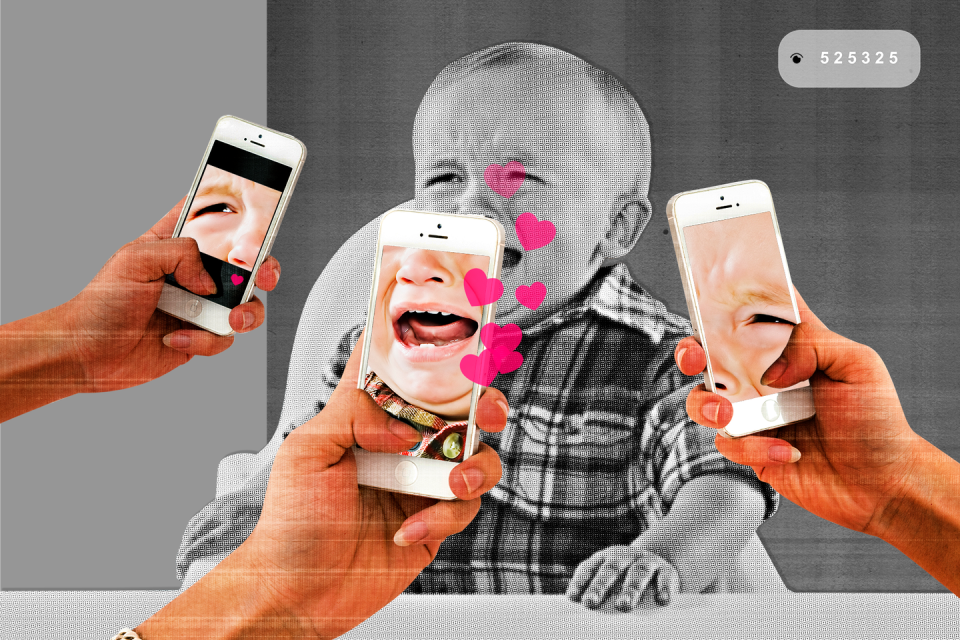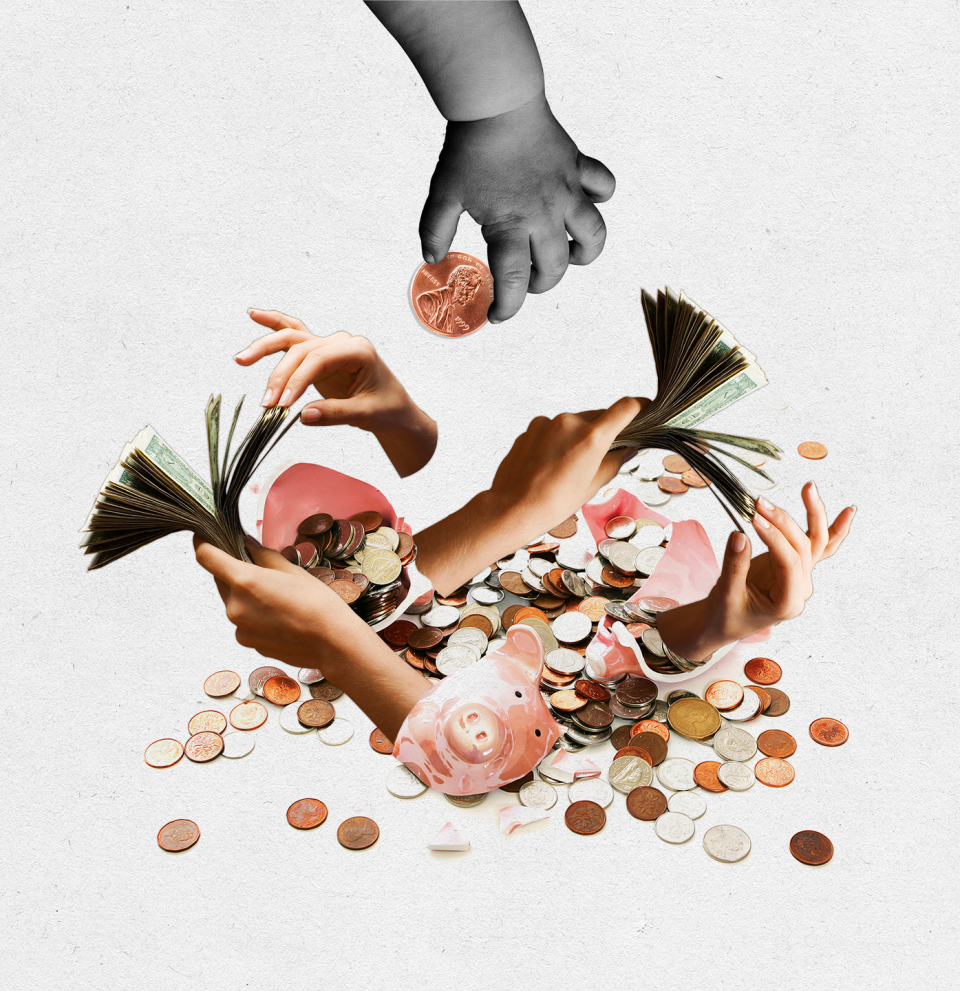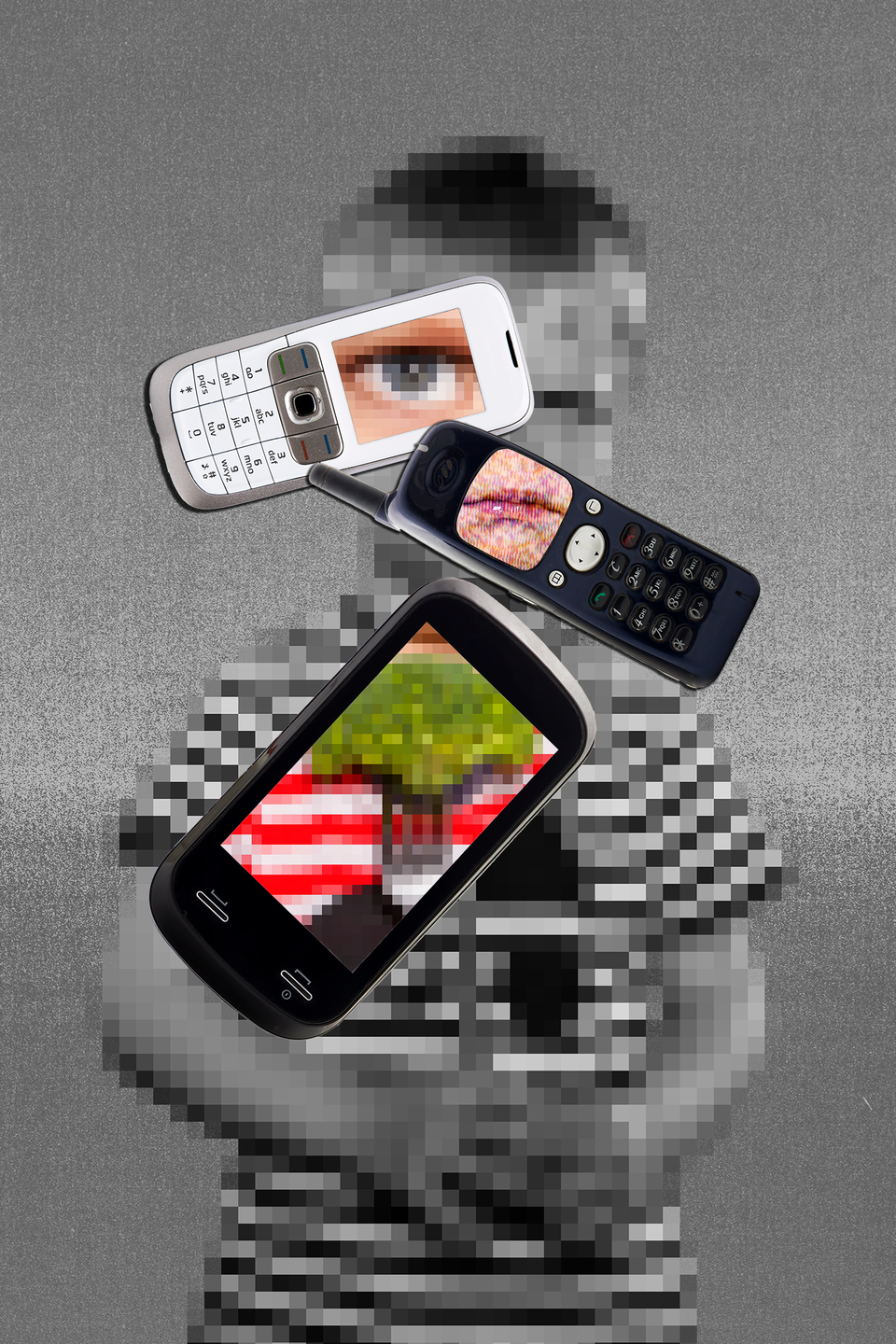“We’re Never Doing This Again”: What It Took for These Parenting Influencers to Pull Their Kids Offline

"Hearst Magazines and Yahoo may earn commission or revenue on some items through these links."
When Annalee Grace, 32, was pregnant with her second child, she started routinely making videos about motherhood to upload to Instagram and TikTok—she wanted to share honestly about all the joy and loneliness she experienced while raising her two daughters, from postpartum anxiety and intrusive thoughts to dinnertime toddler meltdowns. Like many young millennial moms who came of age instinctively publishing every other part of their lives online, she didn’t think twice about posting her children.

If you had come across her page back then, in 2021, you would’ve known her children’s names, their birthdays, and when they took their first steps. She kept posting the two girls even as she gained tens of thousands of followers who loved Annalee’s particular brand of authenticity and humor. But if you look at her accounts now, you’ll very rarely catch a glimpse of her kids.
This is how Annalee explains her decision to take her daughters offline, which she did in the spring of 2023: She was talking to a fellow mom friend who had only a few hundred followers on social media and didn’t really mind sharing her children with that small social circle. What was a few hundred people anyway? Something about that struck a chord in Annalee. “I thought, Wait a minute. That’s 200 people. It sounds so dumb but it had never correlated in my brain how big those numbers really were,” she says. “I started thinking, if I pushed my kids on a stage in front of 200 strangers they didn’t know, they would be so scared. Their little eyes would turn to fear and they would run to me. That was a heartbreaking visual. Then when I think about doing that in front of 5,000 or 10,000 or 50,000 people, that would be terrifying for them. I just woke up one day and thought, What am I doing?”
The Parenting Influencers Who Won’t Stop Posting Their Children

The multibillion-dollar industry of family vlogging is awash in accusations of exploitation, but these creators insist that making content out of their kids is worth it. High-profile “sharenters” defend their decisions to Cosmo.
READ
What’s the Price of a Childhood Turned Into Content?

In the unregulated world of family vloggers, children are, for the most part, not entitled to a single cent they help earn. We spoke to creators—and a former kid influencer—to understand how this unusual family business actually works.
READ
Since coming to that realization, Annalee only sparingly posts family photos, and if she does, she only shows the back of her daughters’ heads or covers their heads with an emoji. Part of her calculus is looking toward the future. She remembers her own angsty adolescence and thinks of how much angstier she would have felt if she had grown up as an influencer kid. “I can’t imagine how I would have used that against my parents if I had grown up like that,” she says. “It would destroy me as a preteen…to know that thousands of strangers knew about my potty training. I just think it could totally backfire.”
Welcome to the dawn of a new era in “sharenting”—the modern phenomenon of parents sharing intimate details about their children online and supercharged by popular “parenting influencers,” who post such content to millions of followers. Annalee is part of a growing cohort of creators: the ones who have chosen to pull their kids offline even as they continue to make content that revolves around the experience of parenthood. Just a few years ago, it would have been unthinkable for a momfluencer to keep her children private. But as concerns about the rights and privacy of children online intensify and backlash against controversial family vloggers mounts, more and more “sharenters” are deciding it’s best to shield their children from the prying eyes of the internet.
When mommy bloggers, the predecessors of today’s family vloggers, first burst onto the scene in the early 2000s, the internet was a different place. Early pioneers wrote their missives on Blogspot for thousands of fans, but it wasn’t their livelihood—far from it. When folks like Heather Armstrong started running ads on their blogs, the decision was seen as “tacky and inauthentic, a sign of selling out,” according to journalist Taylor Lorenz in her book Extremely Online. Since then, the world of parenting creators has exploded into a multibillion-dollar industry that covers platforms like YouTube, Instagram, and TikTok, attracting tens of thousands of influencers hoping to make a living off their homegrown (quite literally) talent.
Millions of viewers wait breathlessly for the next video from their favorite families and big-deal brands jockey to partner with the happy broods on lucrative sponsorship deals. Many content creators record (and often choreograph) every minute of their children’s lives, from the moment the pregnancy stick turns blue to the day they send their kids off to college. Increasingly, the parenting influencer universe is also filled with controversy: Former family YouTuber Ruby Franke was just sentenced to up to 30 years in prison on charges of child abuse; a mom who inadvertently recorded and uploaded a video urging her son to cry more about a sick pet attracted widespread outrage; and a bombshell New York Times investigation revealed that some moms who run Instagram accounts for their underage daughters open them up to predation and abuse by adult men. Alongside these salacious headlines are more everyday concerns: that the kids who are the stars of these channels don’t share in the financial rewards and that their privacy is pushed aside in the name of content creation. Given that perilous landscape, many creators who painstakingly built platforms with the help of their kids are now reckoning with those decisions and forging a new path forward.

Annalee isn’t the first “sharenter” to pull a 180—in the last few years, a flood of prominent influencers have removed their children from their content. There’s Maia Knight, a mom with more than 10 million combined followers across platforms who used to share daily vlogs of her twin daughters before announcing she wouldn’t be showing them anymore. “I’m making a choice for my daughters to protect them,” Maia explained in a TikTok. She left up old videos and photos, but now, she either films her kids from behind or covers their faces with emojis. And there’s Laura Fritz, 30, with 2.6 million followers, who used to garner millions of views on videos with her daughter before announcing she was removing her kids from TikTok so they could grow up “without the pressures of social media.” Fritz now primarily makes video content without featuring her children, although she does continue to post their pictures on Instagram.
Grant Khanbalinov, 33, knows how difficult it can be to shift gears once you’ve already established yourself as a content creator who freely shares your children with the rest of the World Wide Web. Khanbalinov gained some 3 million TikTok followers by posting candid family vlogs about himself, his wife, and their two young children. Khanbalinov says he was raking in over six figures a year via brand deals. “Our channel took off overnight and we just started going down the rabbit hole,” explains Khanbalinov. “It sucks you in and changes your life overnight and it is very, very tough to get out of.”
He describes his decision to take his kids offline as an “epiphany” that came to him when the family was on vacation at Disney. “I noticed they were looking more for the camera and what to say and what video to do or my acceptance when I was taking a picture,” he recalls. “I just woke up in a cold sweat and I was like, ‘We’re done. We’re never doing this again.’”
Meanwhile, some are making the decision to keep their children offline before they even have children. Take 29-year-old Allison Kuch, who is married to NFL player Isaac Rochell and has 3.1 million followers on TikTok. She had no qualms with sharing the ups and downs of pregnancy, but she warned her fans in advance that they wouldn’t be seeing her daughter’s face after she’s born. “My husband and I just could not find one positive to her being on our social media,” she says in a TikTok talking about her choice. “At the end of the day, my social media, my husband’s social media, is a reflection of what we want to post, our lives, what we’re going through…it just doesn’t need to include her face.”
In reporting this story, some creators I approached were surprisingly cagey. They worried about that inevitability of influencer life: backlash. That it would seem like they were judging parents who choose to show their kids online. That talking to me could invite scrutiny of their choices, past or present. The comments on family vloggers’ videos tend to be a microcosm of the mass confusion around these thorny issues. Some followers constantly clamor for videos with kids, while others are critical. Fascinatingly enough, when each creator I spoke to pulled their kids offline, the reactions from viewers affirmed their decision. Search through their videos and you’ll see comments from strangers whining about missing the kids. Some of the commenters are angry, accusing the parents of taking the children away from their fans. Other followers are just confused, wondering why they can’t see the entire family they got invested in after months of scrolling on the clock app.

Tyler Champagne, a 31-year-old father with a combined 370,000 Instagram and TikTok following who has never shown his child’s face online, hedges for a moment when I ask him to weigh in on the creators who do feature their children. On one hand, he says, he doesn’t want to judge the decisions other parents make for their families. But on the other hand, those videos where parents chase views by pranking their kids or telling them that their mother died when she didn’t—shocking content that, horrifyingly, tends to attract a ton of engagement—this, he says, he finds “sickening in a lot of ways. It’s like you’re unapologetically exploiting your children for views. It’s one thing to have them in the content, to be a part of it, but it’s another thing to film them having meltdowns or cracking an egg on their head and laughing at them crying. It’s tough to judge other parents, you don’t want to come across as a hater. But I think there’s some levels of it that are worthy of judgment.”
As a creator, Tyler says it’s easy to get pulled into the cycle of wanting to make the type of content that gets the most views. And he wonders about the popularity of his own platform. “Did the thought cross my mind of ‘Could this be bigger if I show my son?’ Yes, it did. But I just don’t know if it’s worth it.”
Instead, Tyler portrays fatherhood on social media by acting out interactions with his toddler son in funny skits and talking straight to the camera about the pitfalls of parenting (like when his son got mad at him because his Popsicle was cold). There is a way, Tyler thinks, to share the reality of being a parent without sharing his son—even if that means giving up on the possibility of a larger platform.
As for Annalee, even as she’s confident she made the right decision for her family, she still sometimes feels the pull to share her kids with her followers, all 800,000 of them. She brightens when she talks about how cute and funny her two girls are—it would be natural to want to show that to other people, she thinks. But internally she’s reframed the videos and photos she has of them as sacred content for her and her husband.
“Something about keeping it for myself makes it ten times more special than posting it online,” she says. And the focus of her content isn’t on the children that turn people into parents but rather the mothers themselves who are changed by the act of parenting. This is where she toes the line of sharing motherhood content without sharing her kids.
These parenting influencers are proof that it’s possible to choose a different path, even if it requires some sacrifice. It’s a more cautious approach that takes into consideration all the perils of the 2024 internet...and beyond. They still want to share candidly about all the ups and downs of being a parent—the unbearable cuteness, the meltdowns, the countless times they questioned whether they were cut out for it. Just don’t ask to see their children.
You Might Also Like

